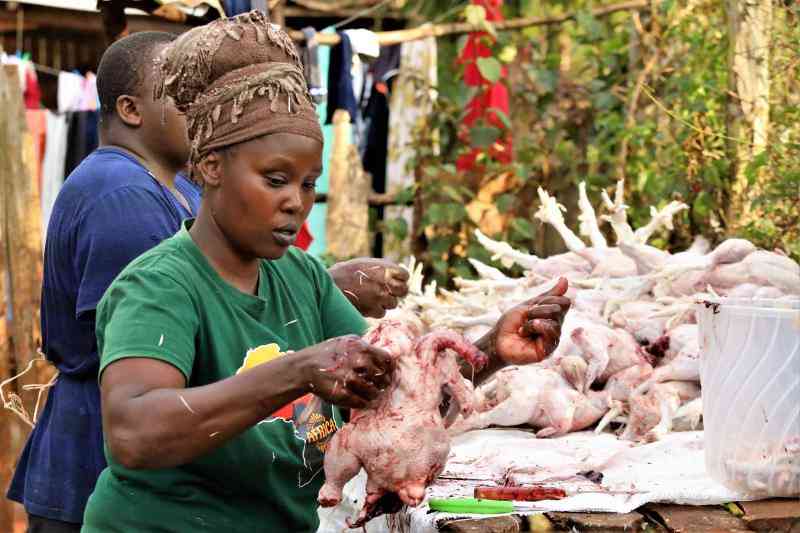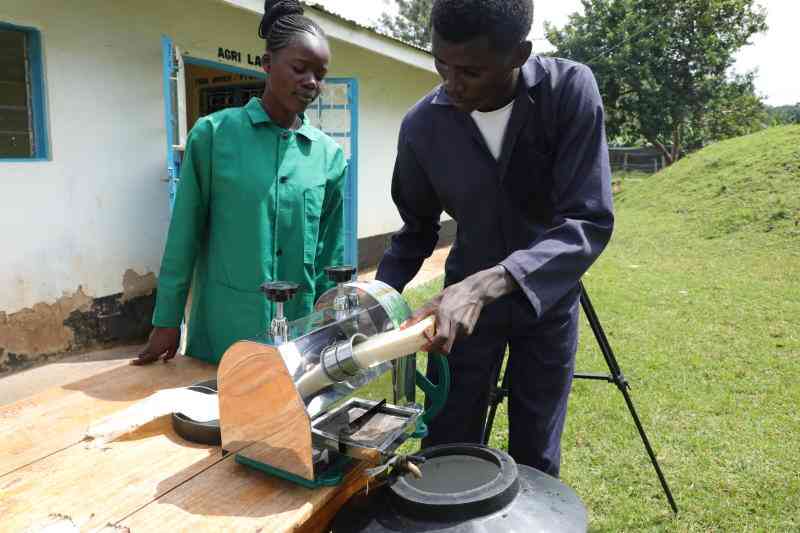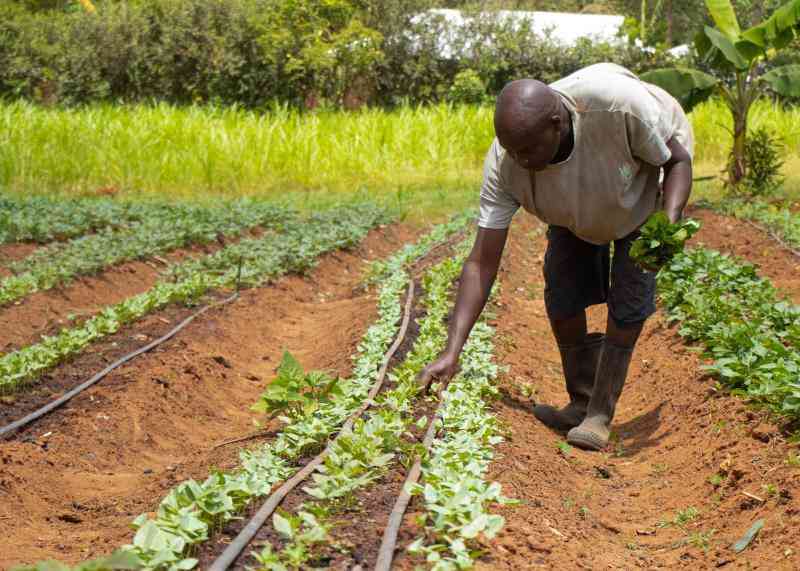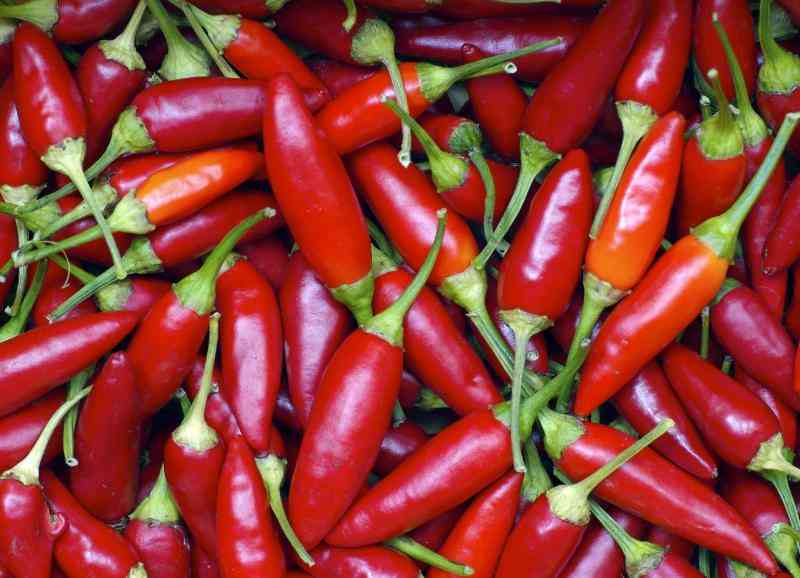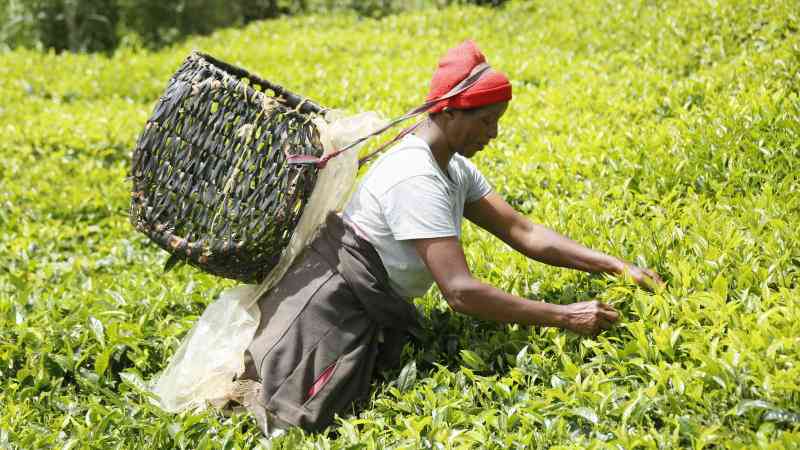Is herbal farming the next big thing? Experts explore
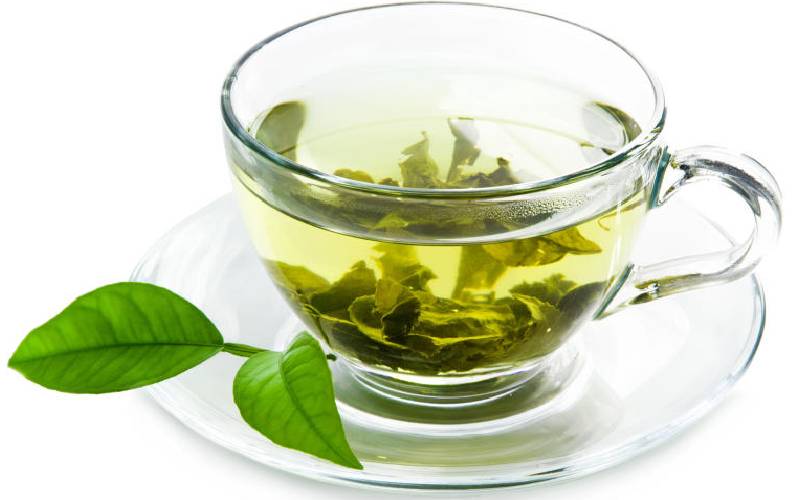
Wilfred Ndirangu never thought chia — a herb — would make her money when she started growing it in 2017. Back then, her father who had been diagnosed with kidney problems, was told to take chia seeds plus medication.
“We used to spend at least Sh20,000 a week on meds. This included chia seeds. It dented our finances,” says Ms Ndirangu.
Then, a 400-gram tin of chia seeds cost Sh800 in supermarkets.
“To save on costs I had to start growing chia. I researched and planted some seeds in our kitchen garden in Nyeri,” says Ndirangu. After that experience, she saw the potential.
It was after the harvest that Ms Ndirangu decided to venture into commercial chia farming. With about an acre of land in Karatina, and armed with two kilos of seeds, Ms Ndirangu planted her first crop in May last year.
She has thus far harvested about 500 kilos of chia seeds which she sells to local farmers at Sh1,000 a kilo. She says most people who buy the seeds are from Nairobi.
These are people suffering from lifestyle related diseases like blood pressure and diabetes.
The procurement graduate says she is yet to satisfy her individual customers and start supplying to supermarkets. She is however identifying markets abroad where she will supply the seeds from a 20-acre piece of land she is in the process of leasing, just for the herb, in Nyeri.
Another herbs farmer, Nick Kipkorir, a trained lawyer, has been on it since 2012. The 29-year-old grows basil, dill, sage, thyme, rosemary, chives and a variety of other herbs.
He says venturing into herbs was a niche he cut out for himself.
“I looked into many things including high profitability of the herbs and the fact that the venture had less competition locally. I had been to other countries where the market for herbs was so rich yet supply was little,” says Mr Kipkorir.
He says most local farmers shy away from herbs due to the stringent requirements involved.
“There are stringent measures on production, handling and packaging that shut away most farmers. Besides, farming herbs requires huge capital investments in cold rooms, greenhouses, irrigation systems and other resources that some farmers find expensive,” he says.
He has found a market in France and Spain as well as local supermarkets and high end restaurants.
“Not many locals use herbs in their homes. But there is a rich market abroad. In fact, most stores we sell to are those established close to where foreigners stay. But with the increase in lifestyle related complications, many people are turning to herbal medicine. This creates a huge global market.
If interested in herbs farming, here are some with potential:
Chia
Chia seeds sprout within a week after which they are transplanted. The plants grow to the size of a small tree. The crop matures within four months. Then, flower heads are picked, dried and crushed to get the seeds. Chia seeds are grown organically and can thrive even in the absence of artificial fertilisers. The plant is hardy and grows in dry areas where it tolerates various soil and climatic conditions.
Chia seeds are said to boost libido and improve brain health. They are also rich in fibre, protein, vitamins and minerals. The seeds, eaten raw or in hot water are good for nursing mums.
Ms Ndirangu explains the ease of cultivating chia.
“Chia is just like a forest that doesn’t need a lot of attention. In fact, it is purely organic and doesn’t need fertilisers or spraying. When planting, I make fallow which is even easier to manage,” she says.
Chia seeds fetch a tidy sum on the Kenyan market. At discounted rates, a kilo of organic chia seeds go for Sh1, 899 on the Jumia online shop.
Dill
Dill seeds grow well when planted directly into the field. In about 14 days, the plants should appear in the soil. In another 14 days, they are thinned to about 12 inches apart.
Look out for leaf spot and a few other types of fungal leaf and root diseases. The plant is harvested as soon as a few leaves appear. The leaves are pinched off for food seasoning and in green salads.
Dill is an excellent source of protein, carbohydrates, phosphorus, iron, magnesium, sodium and potassium. It can also ease the passage of bowel movements and relieve constipation.
Compared with chia seeds, dill seeds cost way higher, going at Sh1, 200 for a can weighing 180 grams on the Jumia online shopping mall.
Fenugreek
Fenugreek, cultivated from seeds, can survive in any ecological condition and it thrives in containers and out in the field. It isn’t a transplanted herb but grows well in about two-inch spacing. This way, seedlings sprout in five days and takes 30 days to harvesting. The leaves can also be harvested after every four months. Known pests and diseases that affect fenugreek are aphids, powdery mildew, charcoal rot, and root rot. Organic pesticides and proper watering however keeps the pests and diseases away.
Fenugreek is widely cultivated for its medicinal and culinary uses. Seeds are used as a spice, dried leaves as herbs, and fresh and tender leaves as a green leafy vegetable. It is known to increase milk production in breastfeeding mums. On the Jumia online shop, a bottle of 180 fenugreek capsules goes for a whooping Sh3, 680.
Moringa
Moringa, also known as the miracle tree has been touted for its powerful medicinal qualities, with claims it can cure up to 300 different diseases.
Moringa leaves, bark, flowers, fruit, seeds, and root are used to make medicine. It relieves arthritis and other joint pain, asthma, cancer, constipation and a variety of other medical conditions.
Others say the plant boosts the immune system and increases milk production in breastfeeding mothers. On Safaricom’s Masoko shop, 150 grams of moringa seeds are sold at Sh475. The trees grow easily from seeds or cuttings. They grow even in poor soil and bloom 8 months after planting.
After the trees have stopped producing fruits each year, branches need to be cut off so that fresh growth may take place.
Moringa thrives in semiarid, tropical and subtropical areas. In lower temperatures, the herb can be grown in a greenhouse.
Want to get latest farming tips and videos?
Join Us
Share this article on social
 The Standard Group Plc is a multi-media organization
with investments in media platforms spanning newspaper print operations,
television, radio broadcasting, digital and online services. The Standard Group
is recognized as a leading multi-media house in Kenya with a key influence in
matters of national and international interest.
The Standard Group Plc is a multi-media organization
with investments in media platforms spanning newspaper print operations,
television, radio broadcasting, digital and online services. The Standard Group
is recognized as a leading multi-media house in Kenya with a key influence in
matters of national and international interest.
 The Standard Group Plc is a multi-media organization
with investments in media platforms spanning newspaper print operations,
television, radio broadcasting, digital and online services. The Standard Group
is recognized as a leading multi-media house in Kenya with a key influence in
matters of national and international interest.
The Standard Group Plc is a multi-media organization
with investments in media platforms spanning newspaper print operations,
television, radio broadcasting, digital and online services. The Standard Group
is recognized as a leading multi-media house in Kenya with a key influence in
matters of national and international interest.


